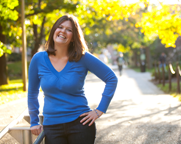WHAT: "By Our Bootstraps"
WHO: Karen Bennett, Cornell University
WHERE: Student Center Room 228
WHEN: Friday, March 2nd - 4:00p.m.
Abstract: Recently much has been made of the grounding relation, and of the idea that it is intimately tied to fundamentality. If A grounds B, then A is more fundamental than B (though not vice versa), and A is ungrounded if and only if it is fundamental full stop--absolutely fundamental. But here is a puzzle: is grounding itself absolutely fundamental? There are seemingly compelling reasons both to think that it must be, and to think that it cannot be. We face a dilemma, and a bad one. I distinguish two different regresses that appear to arise from the claim that grounding is itself grounded, and argue that both are merely apparent.

